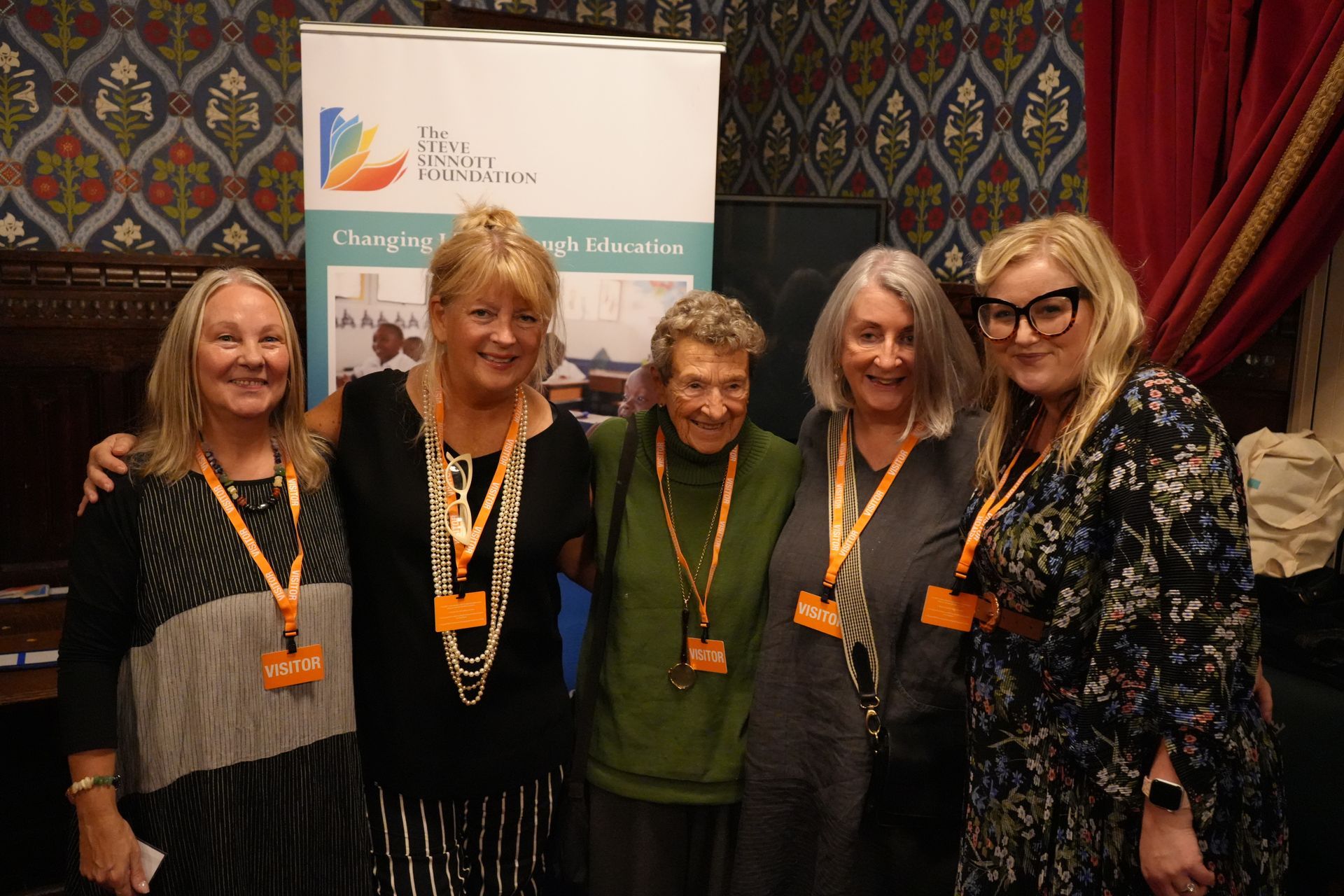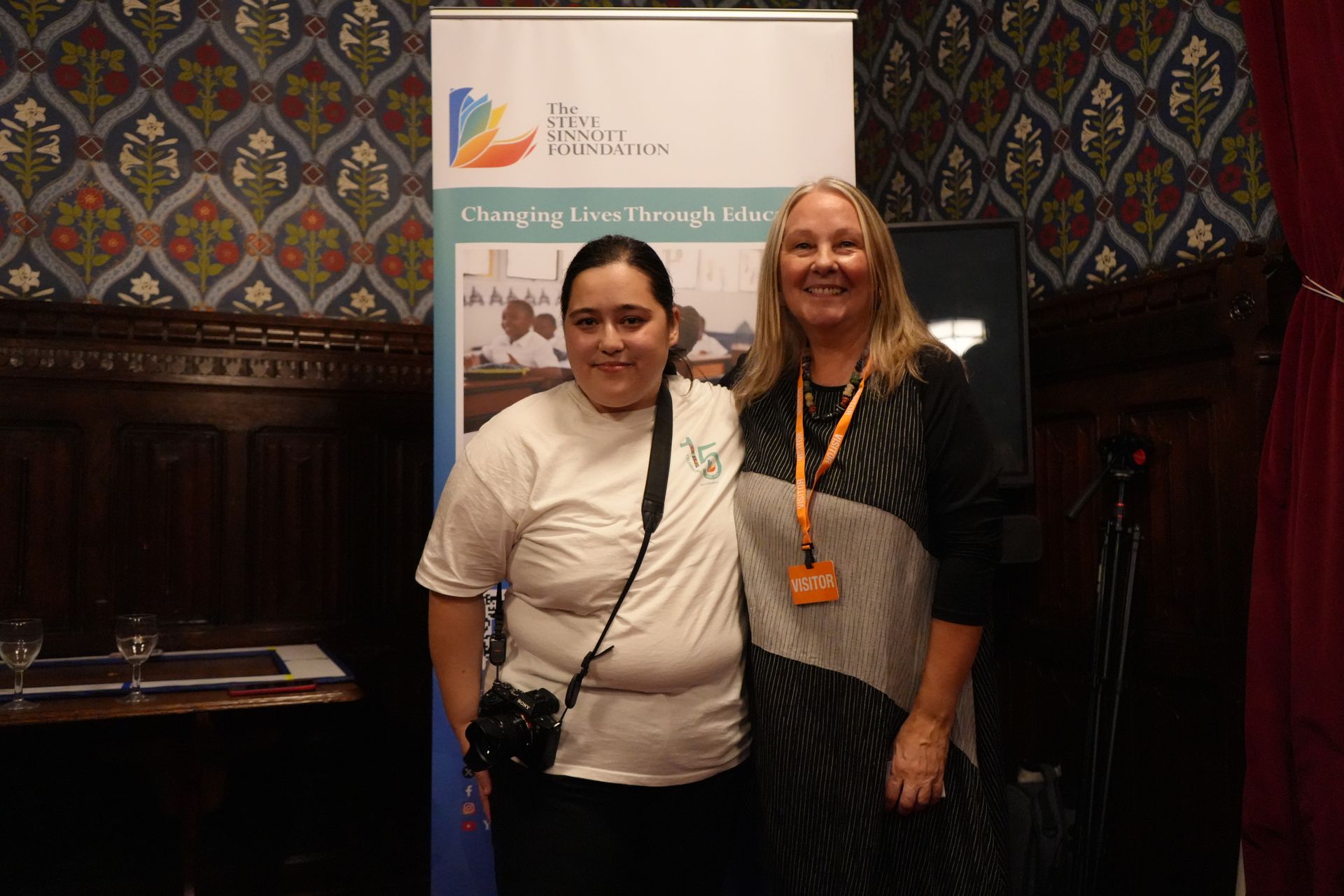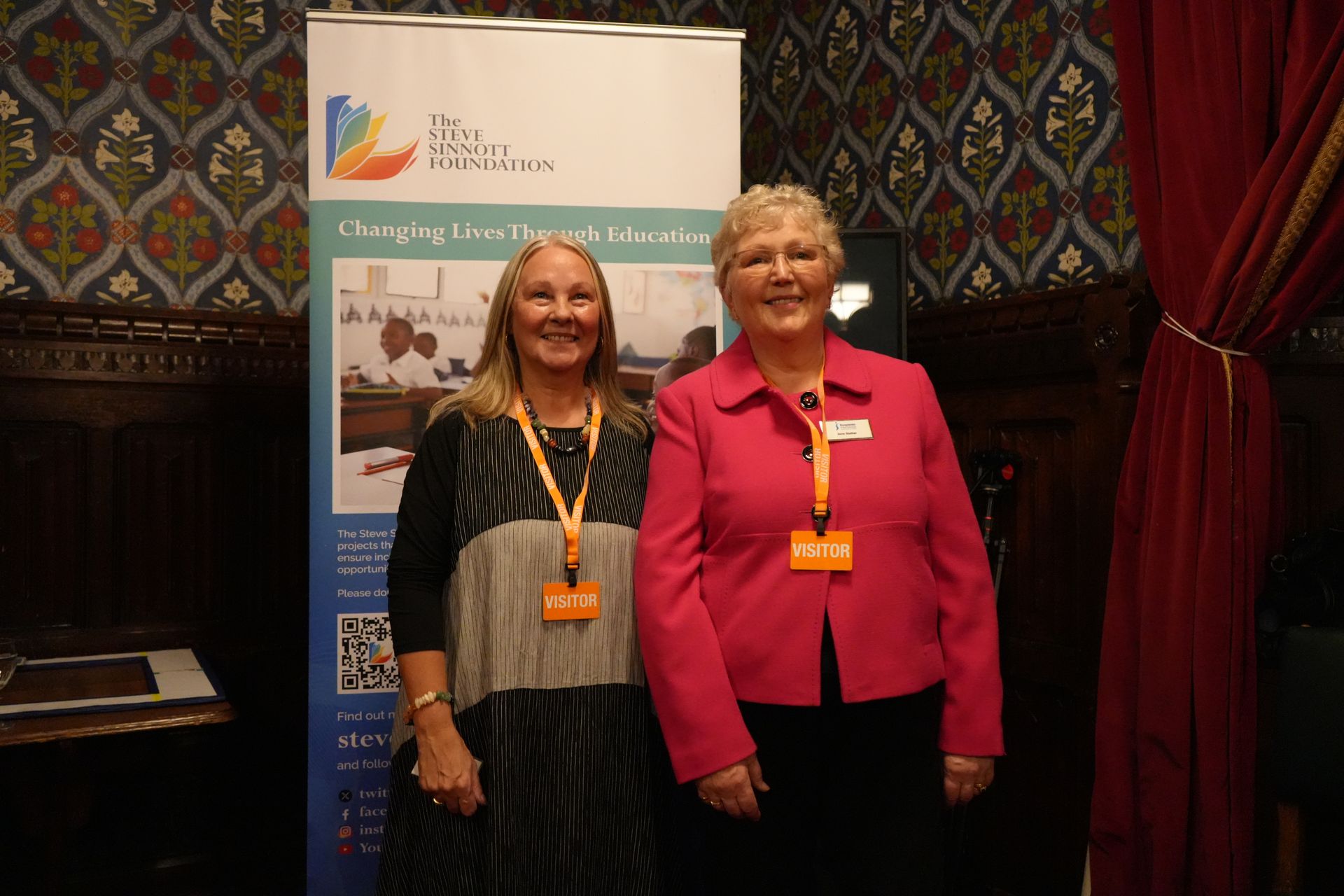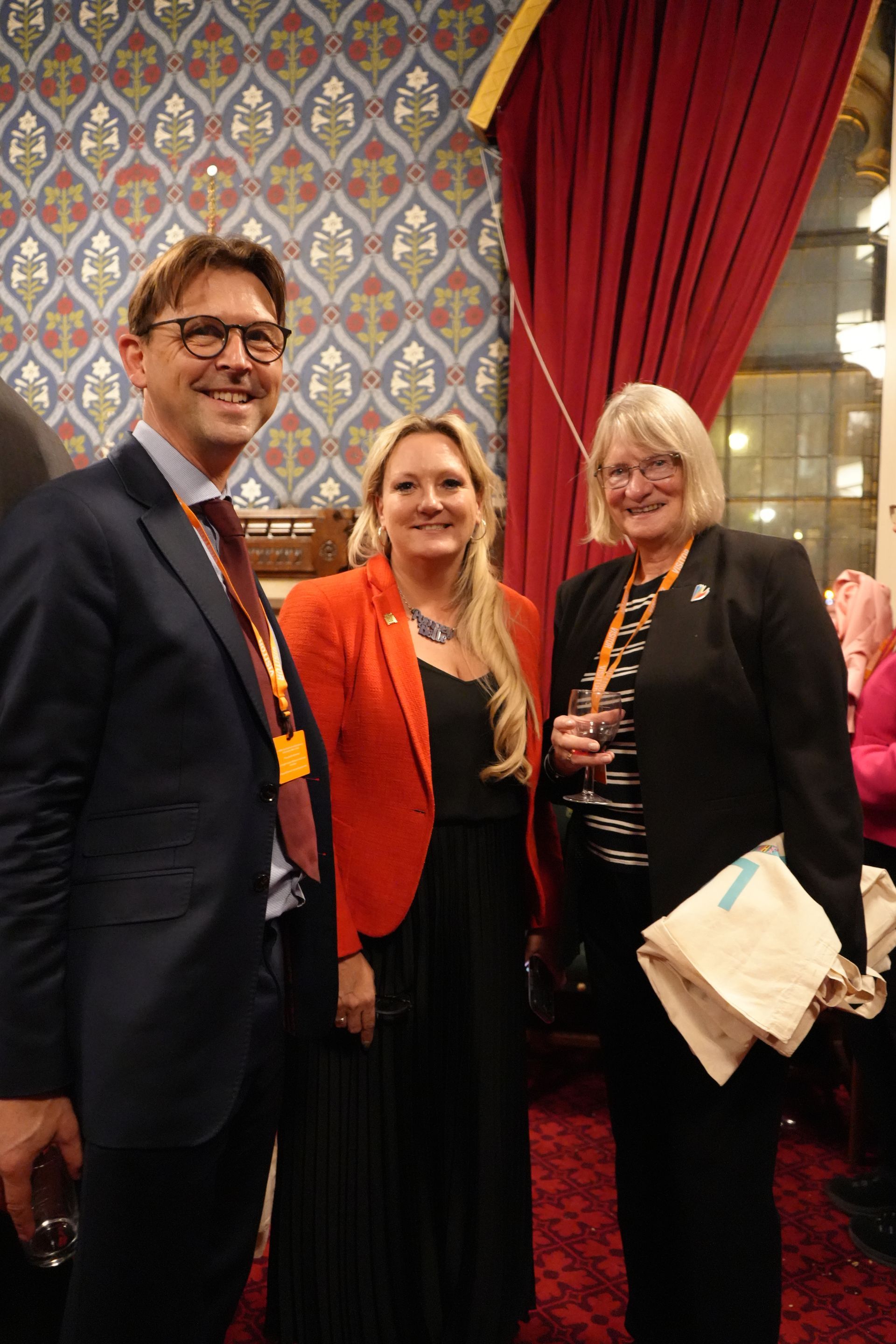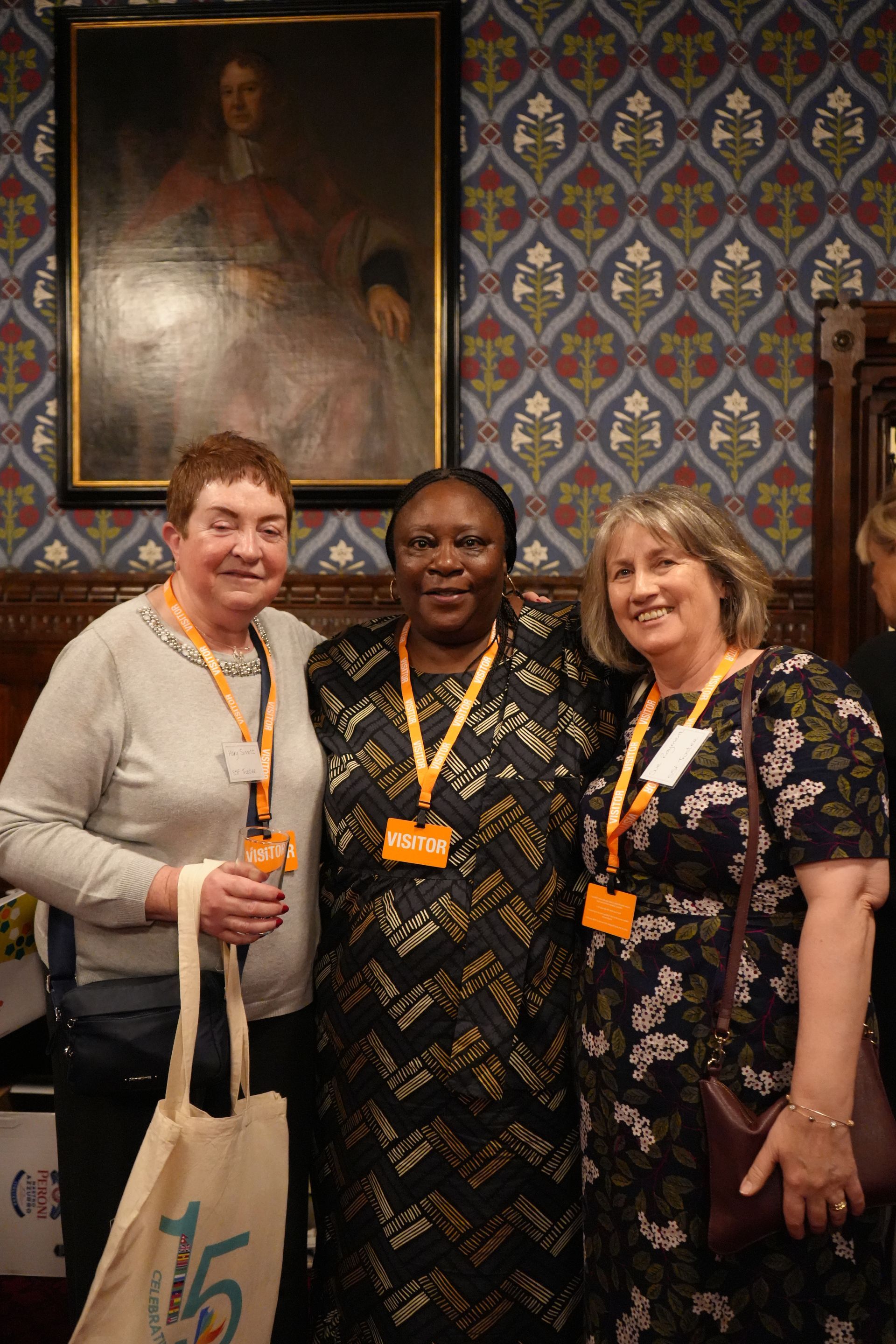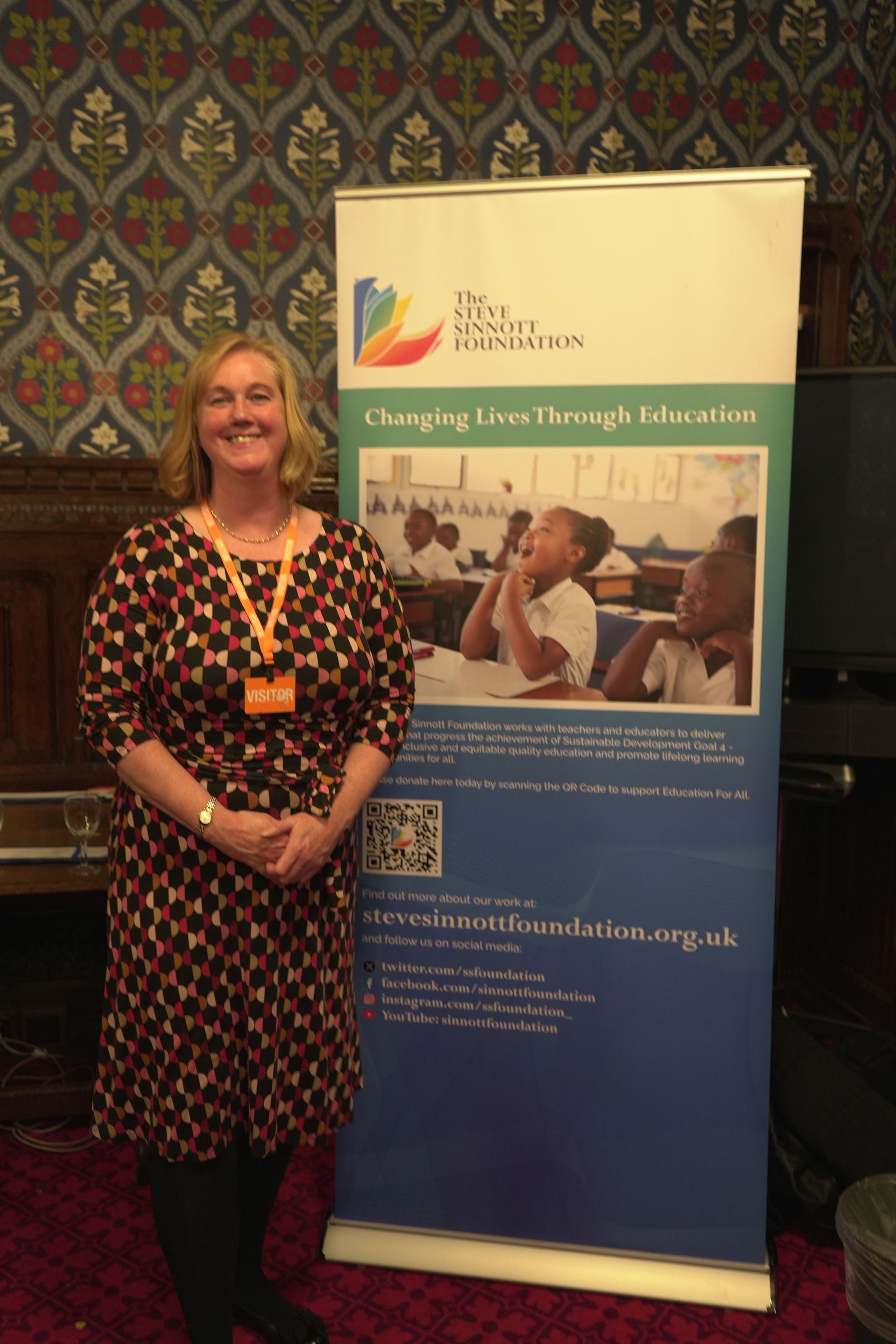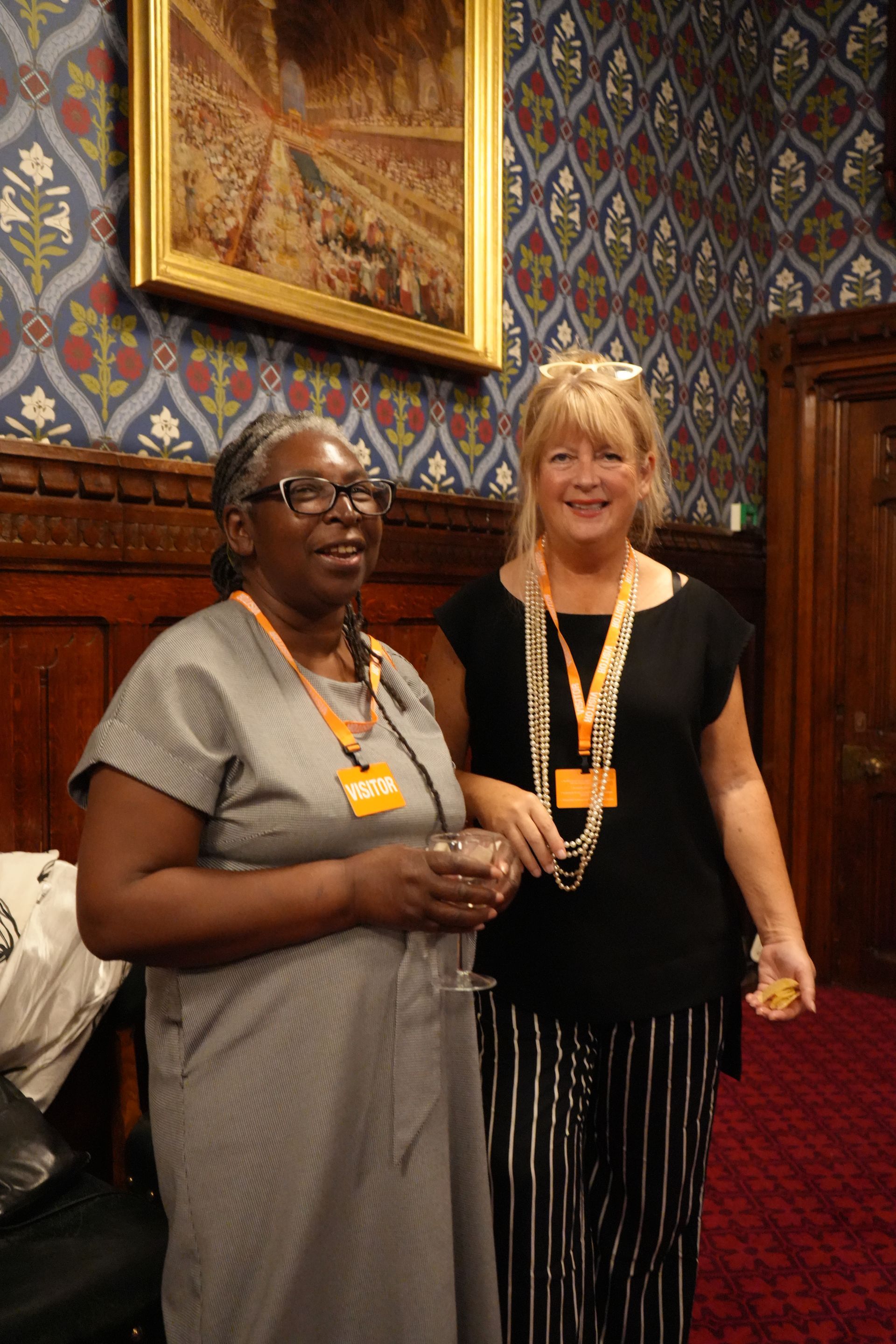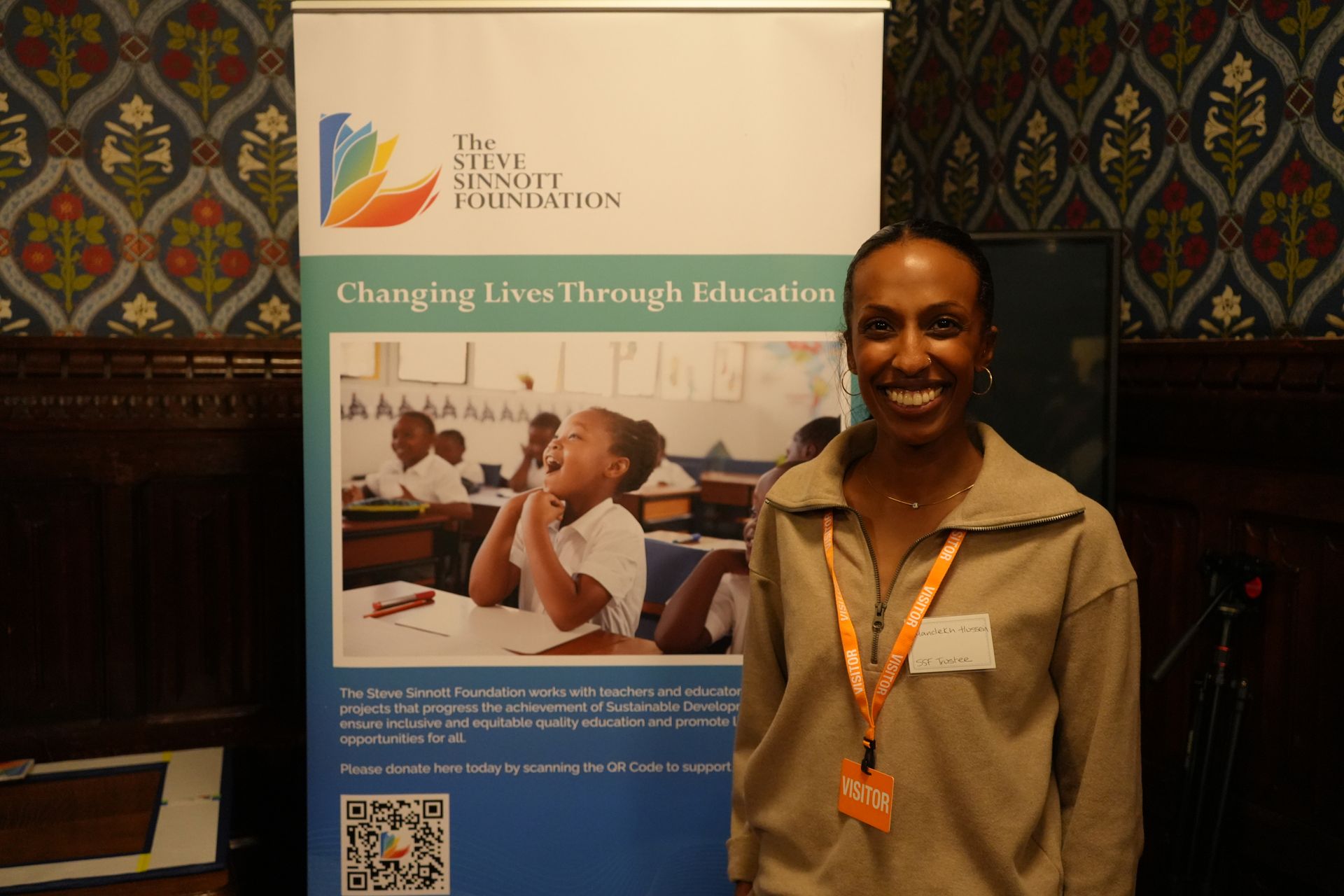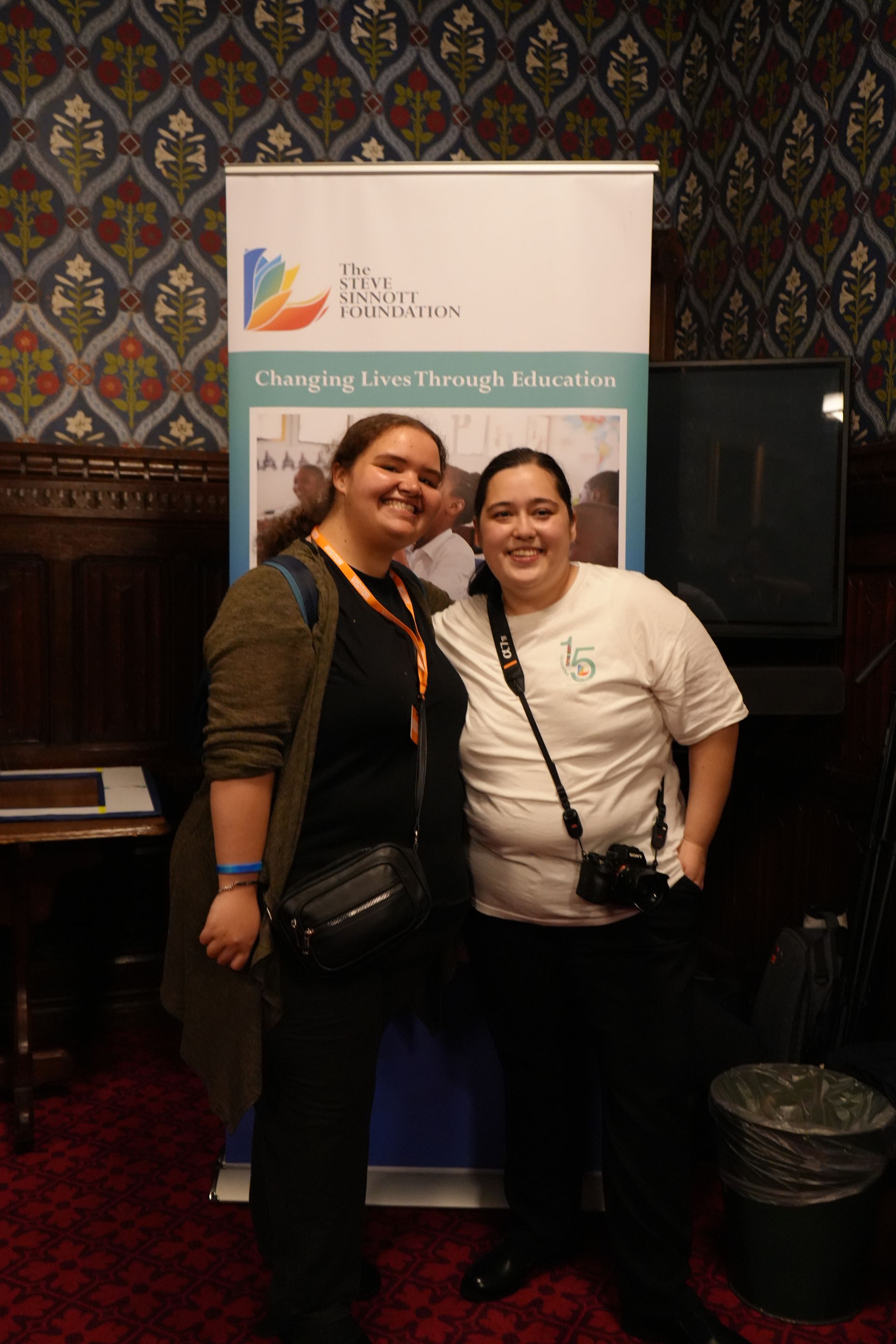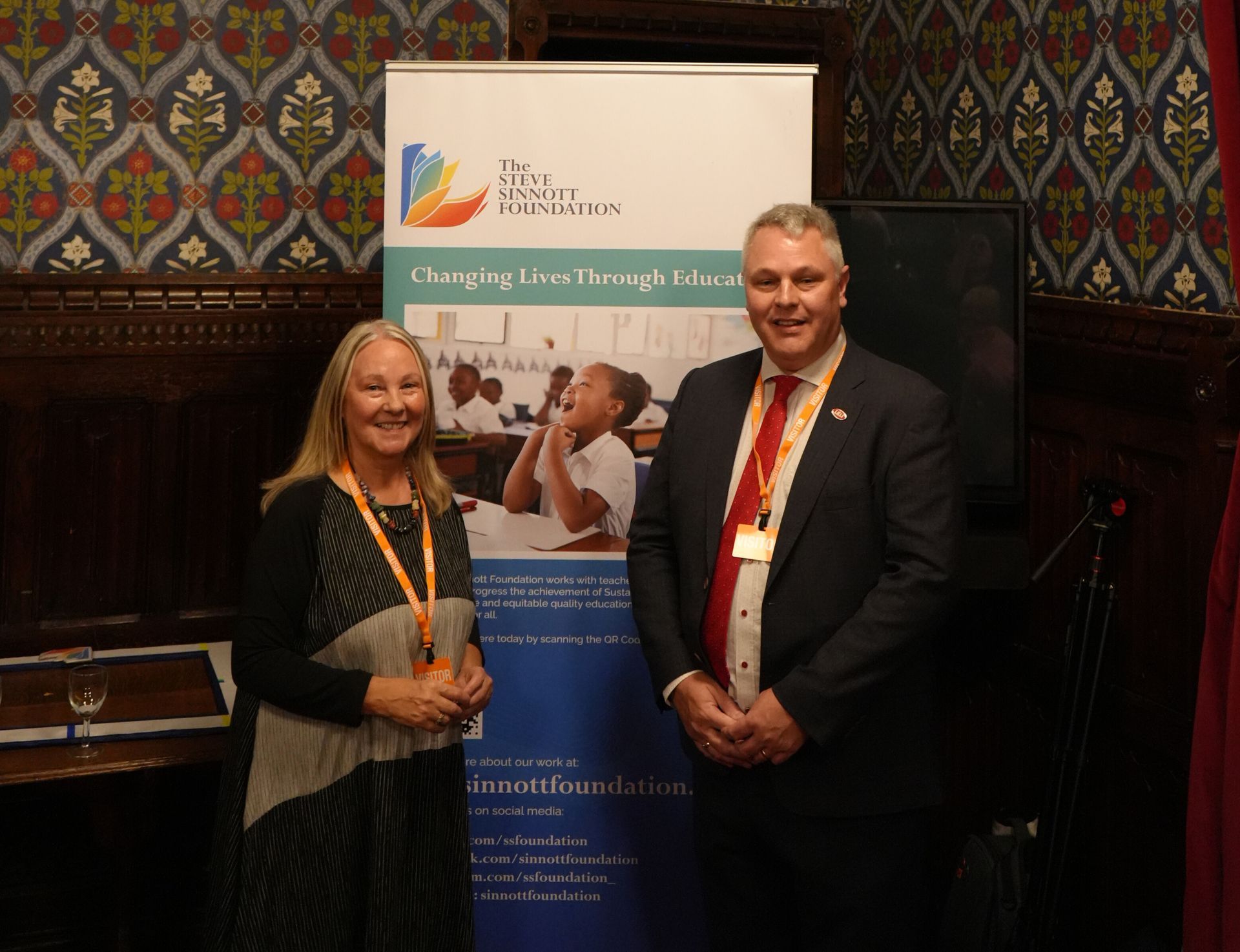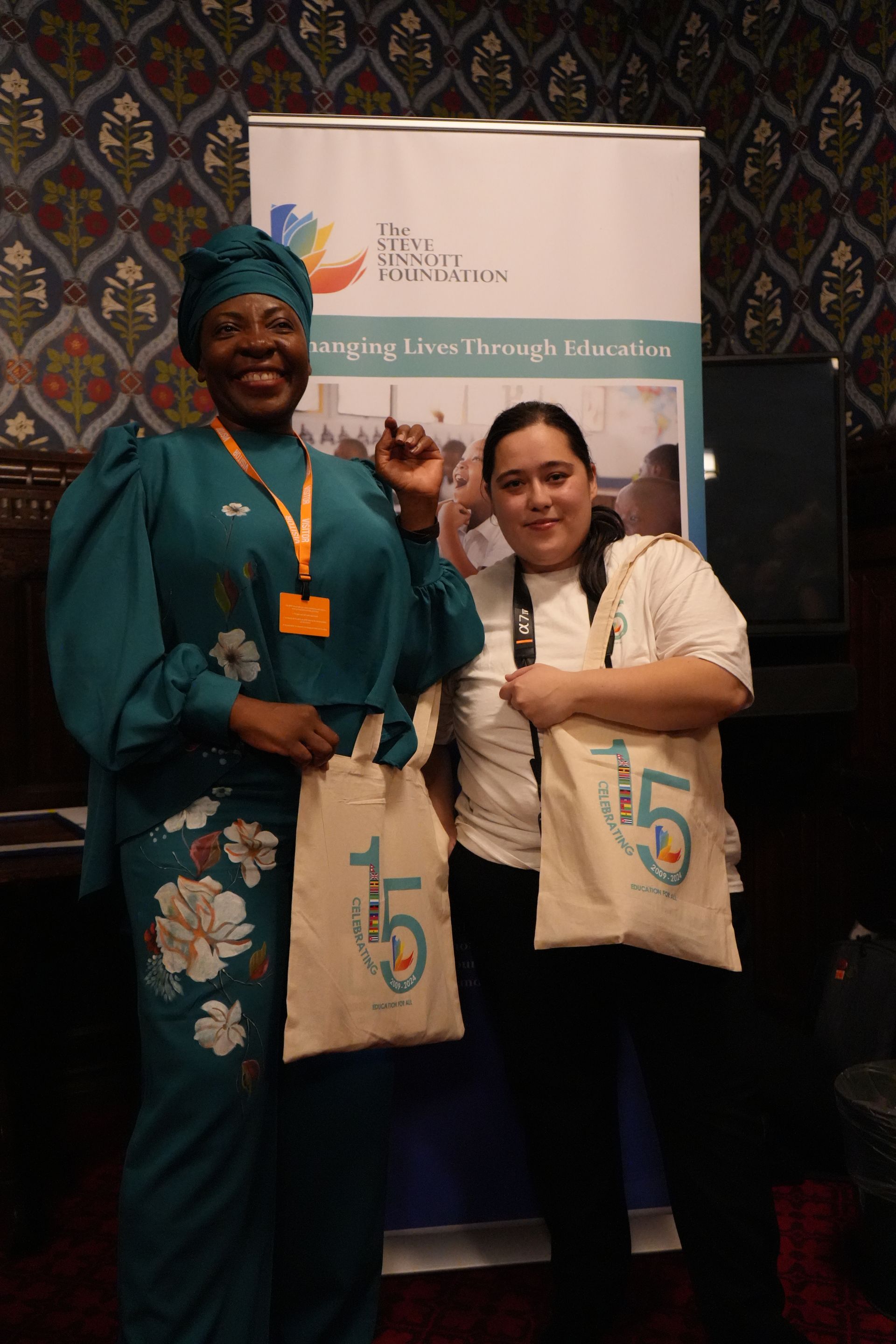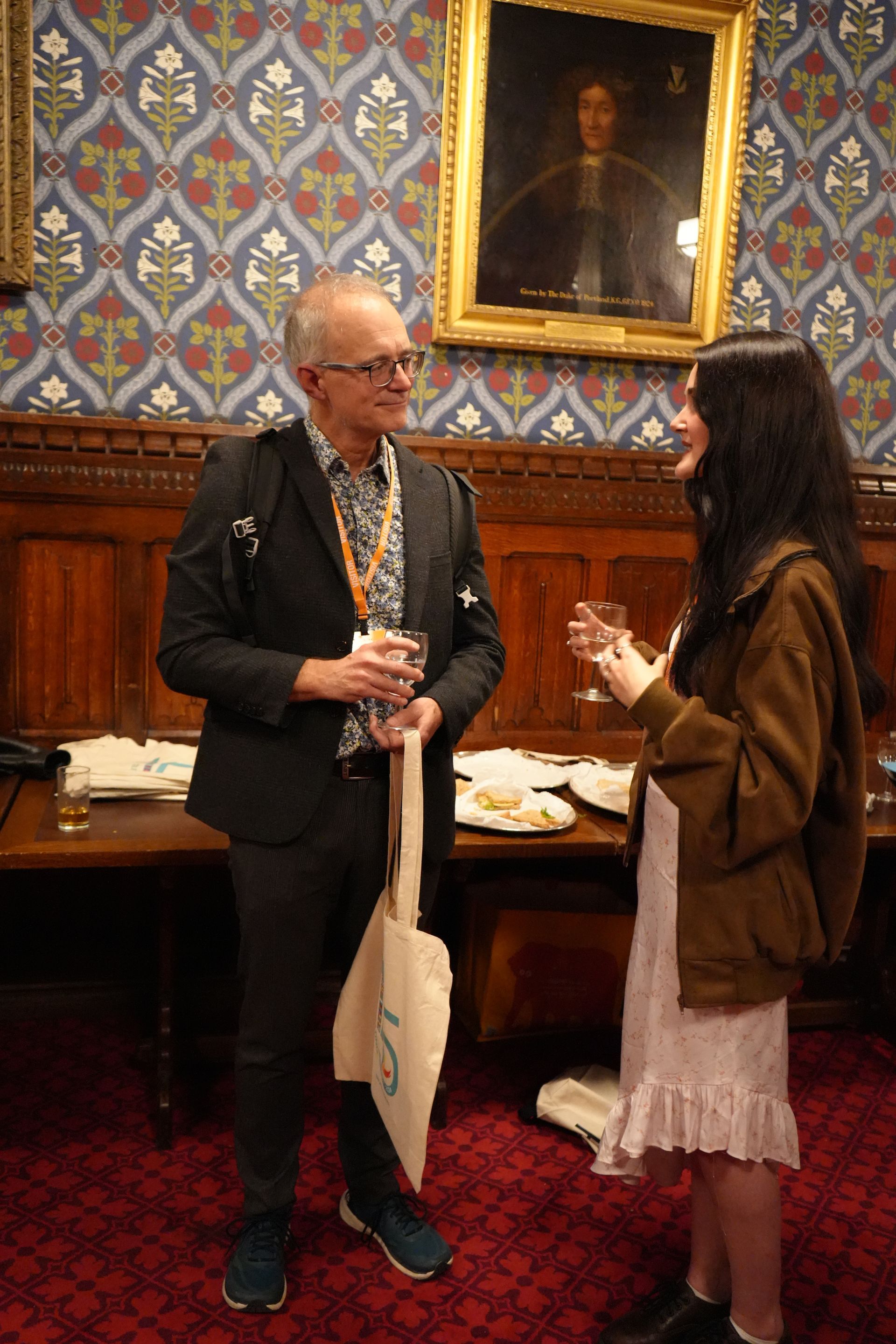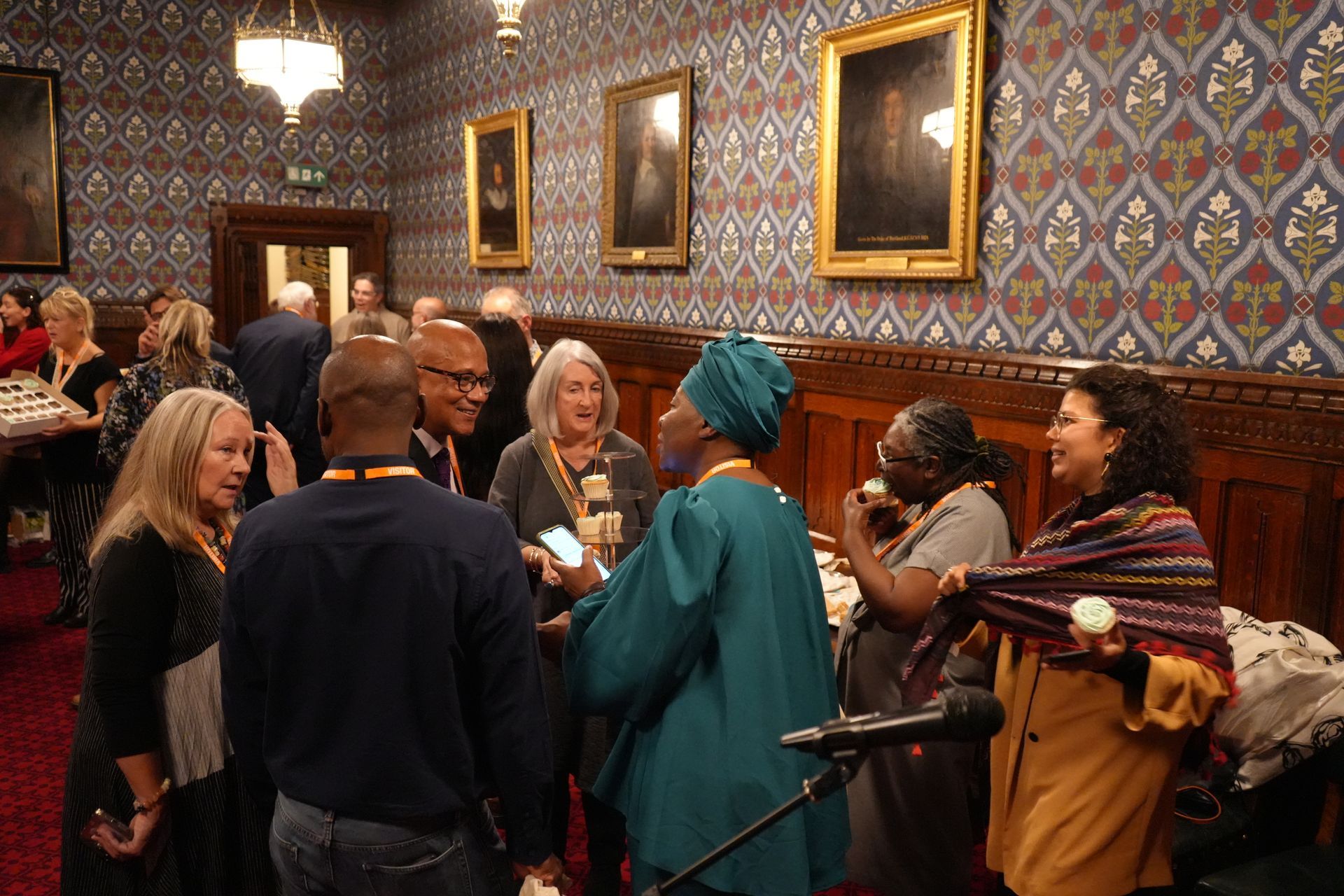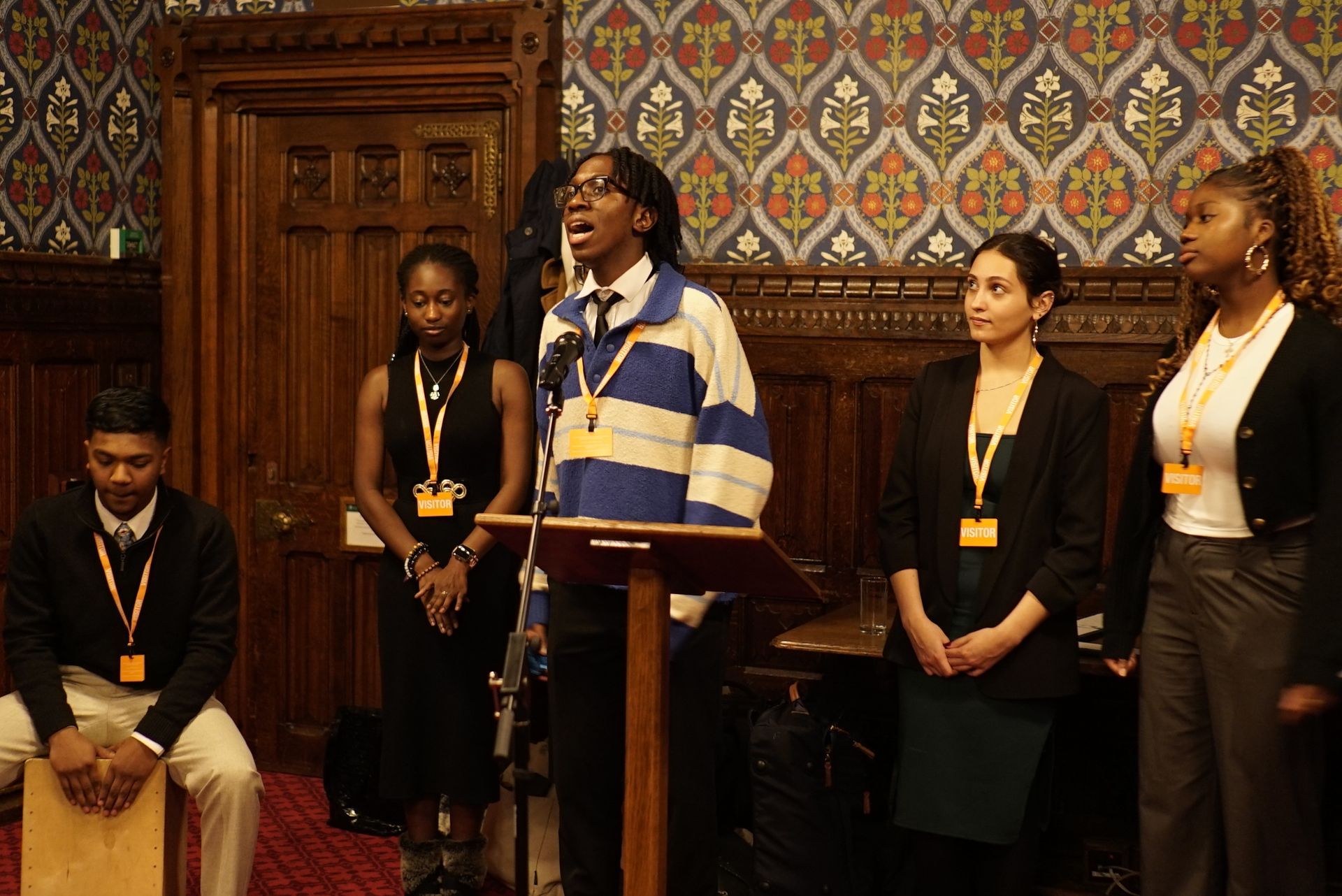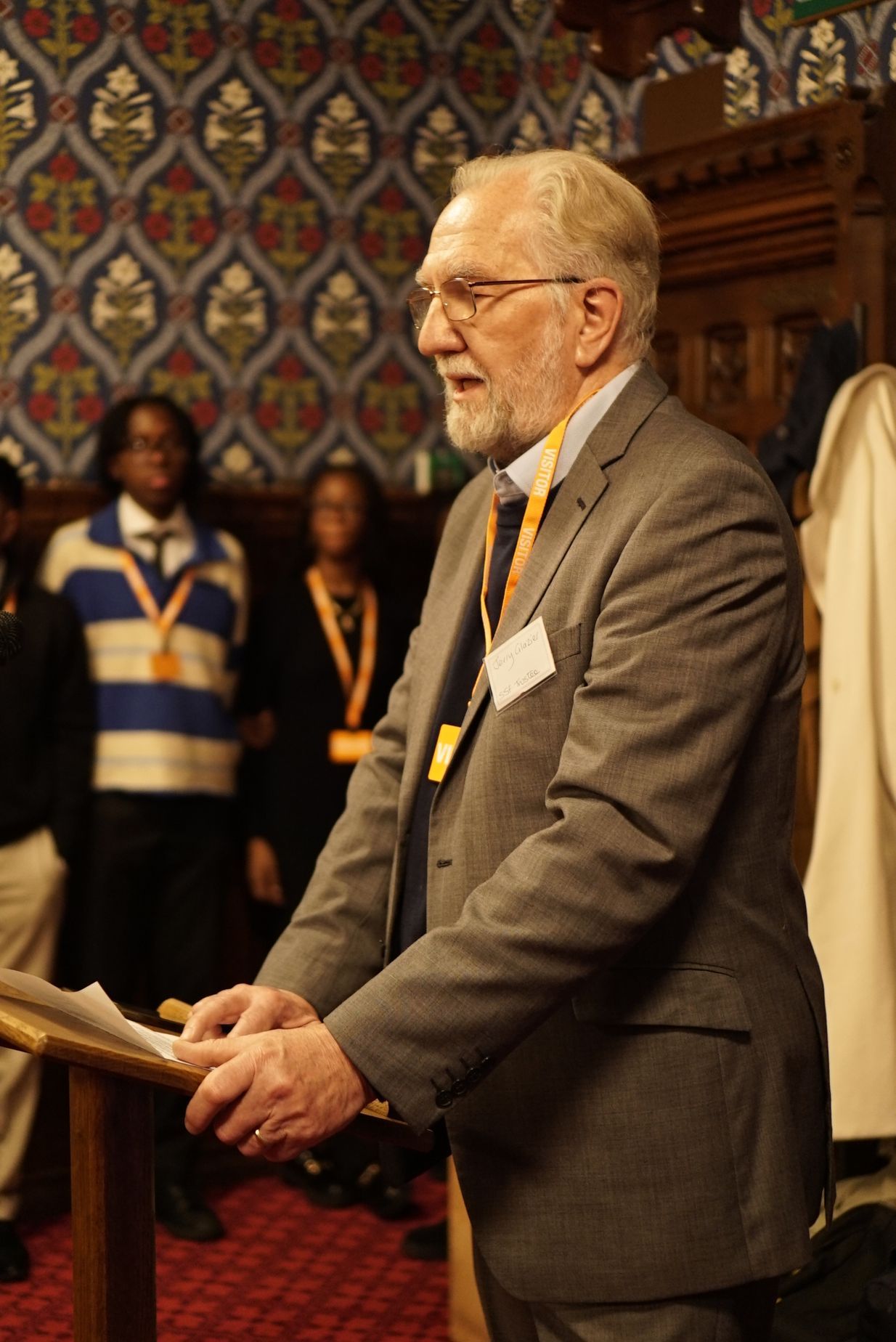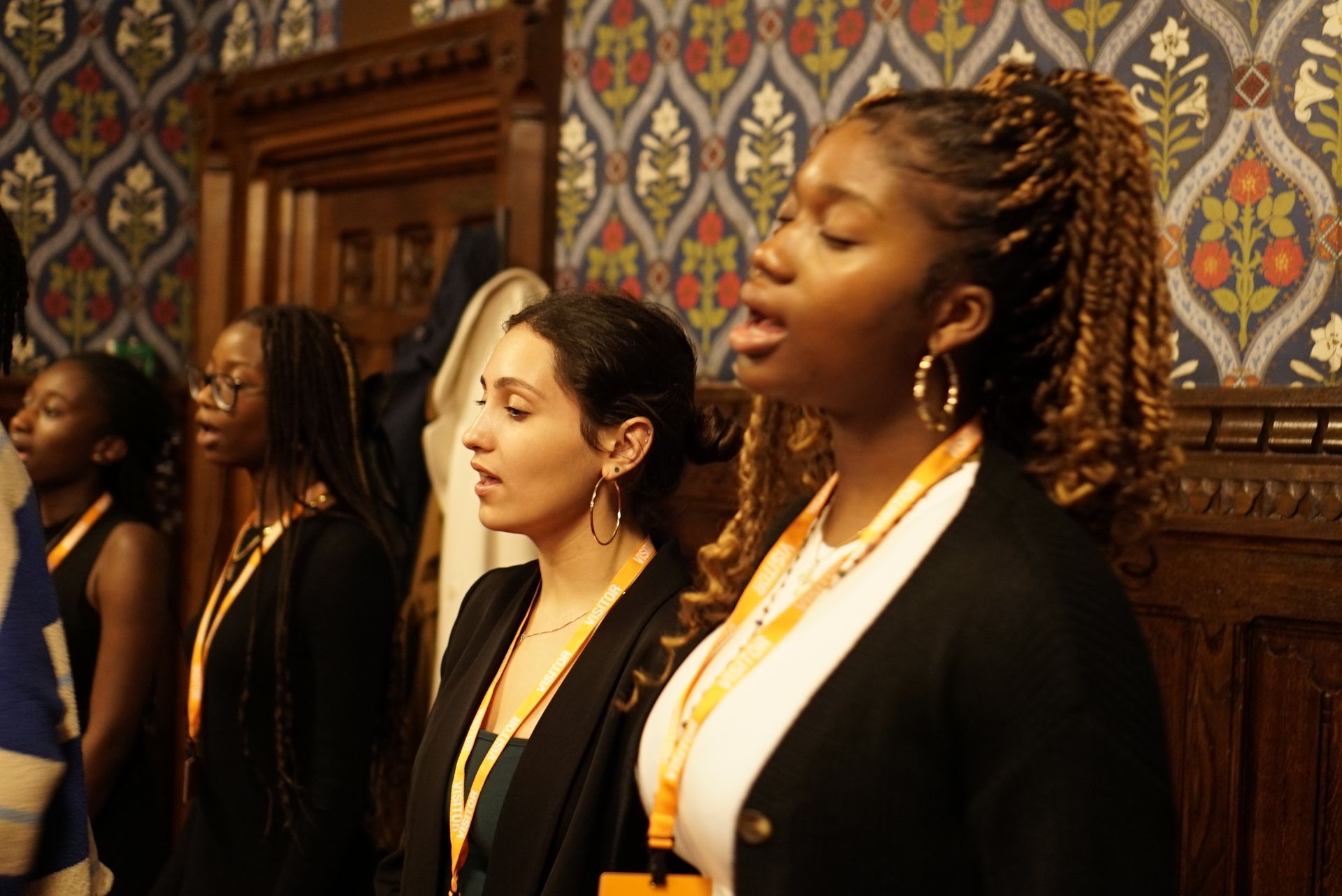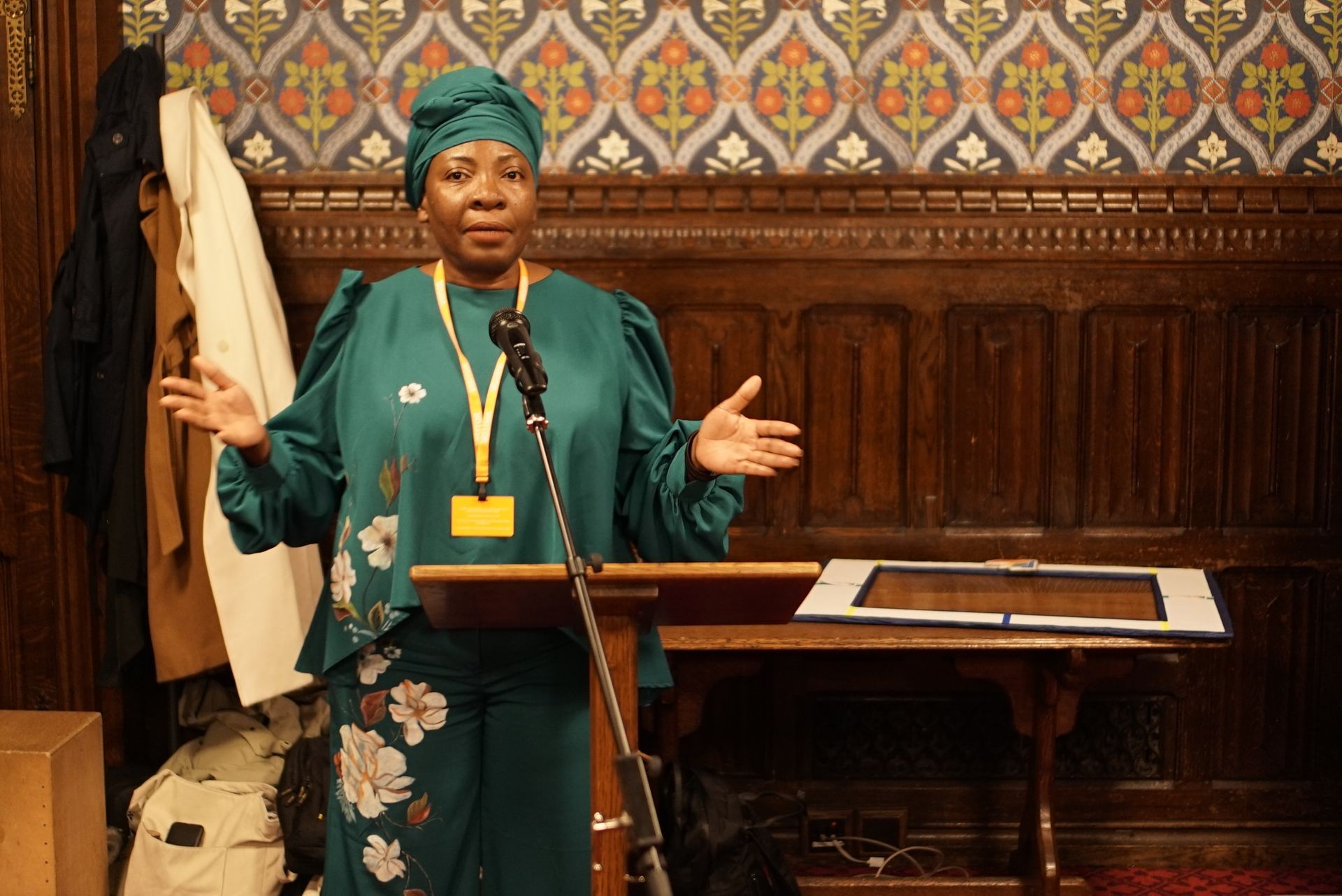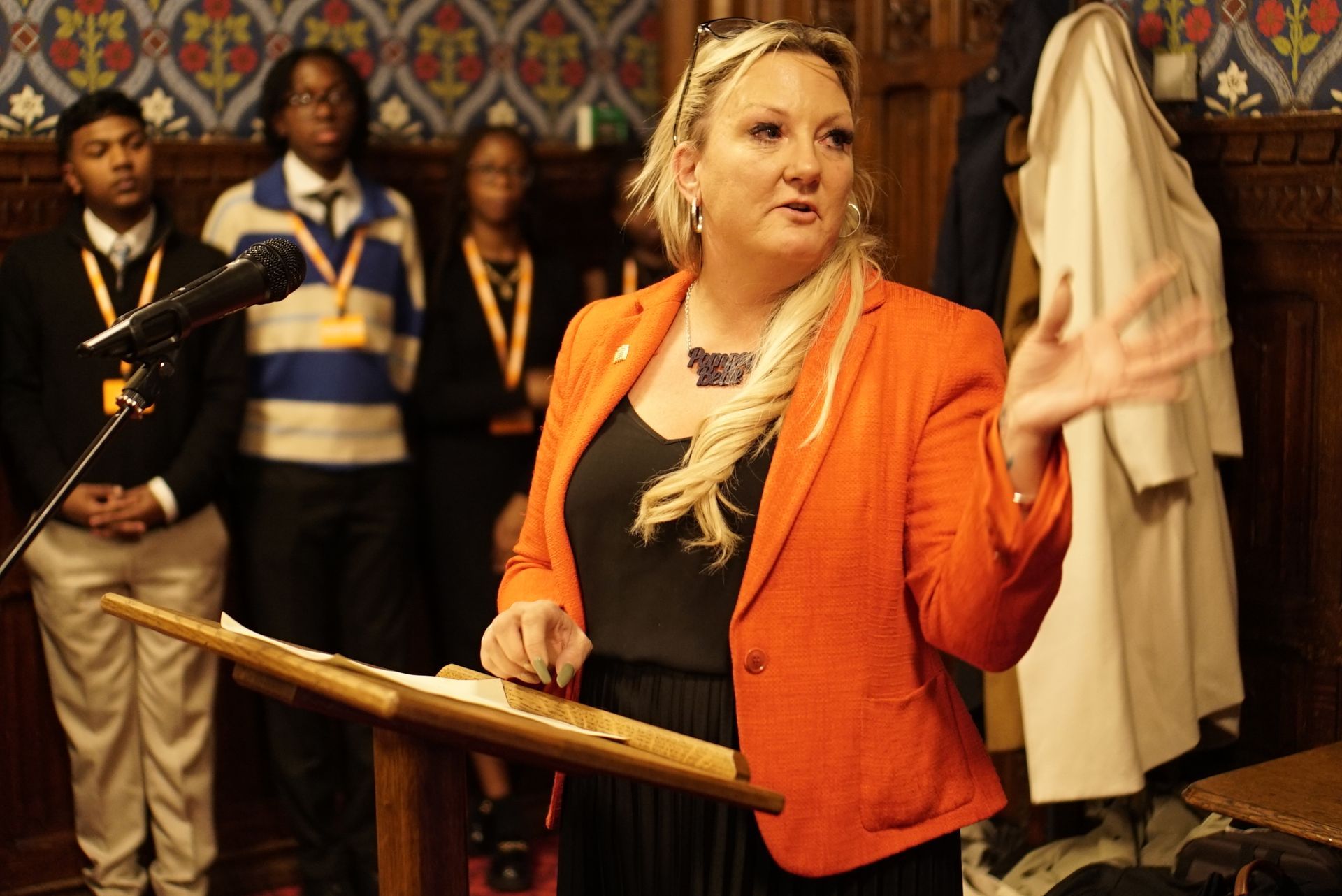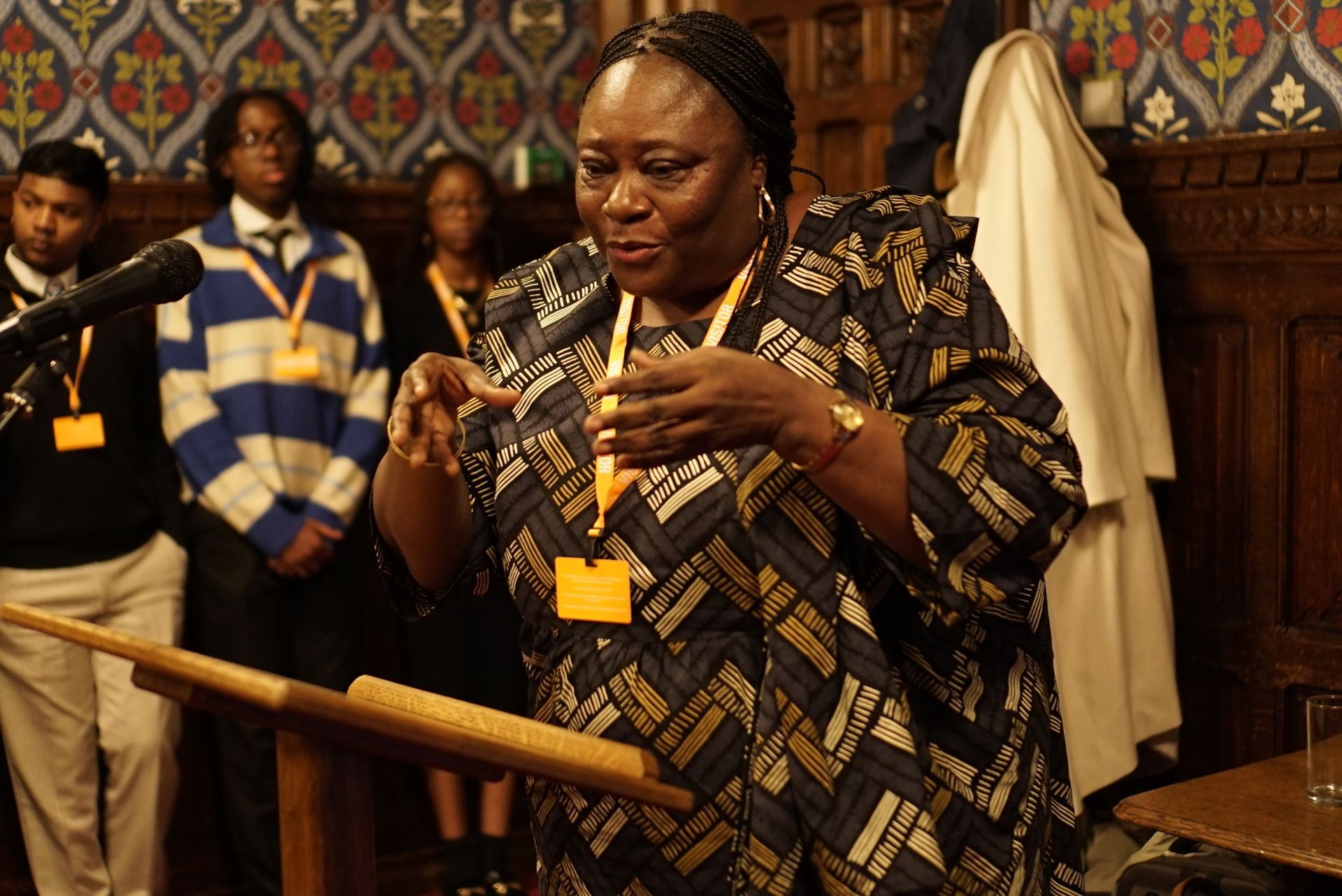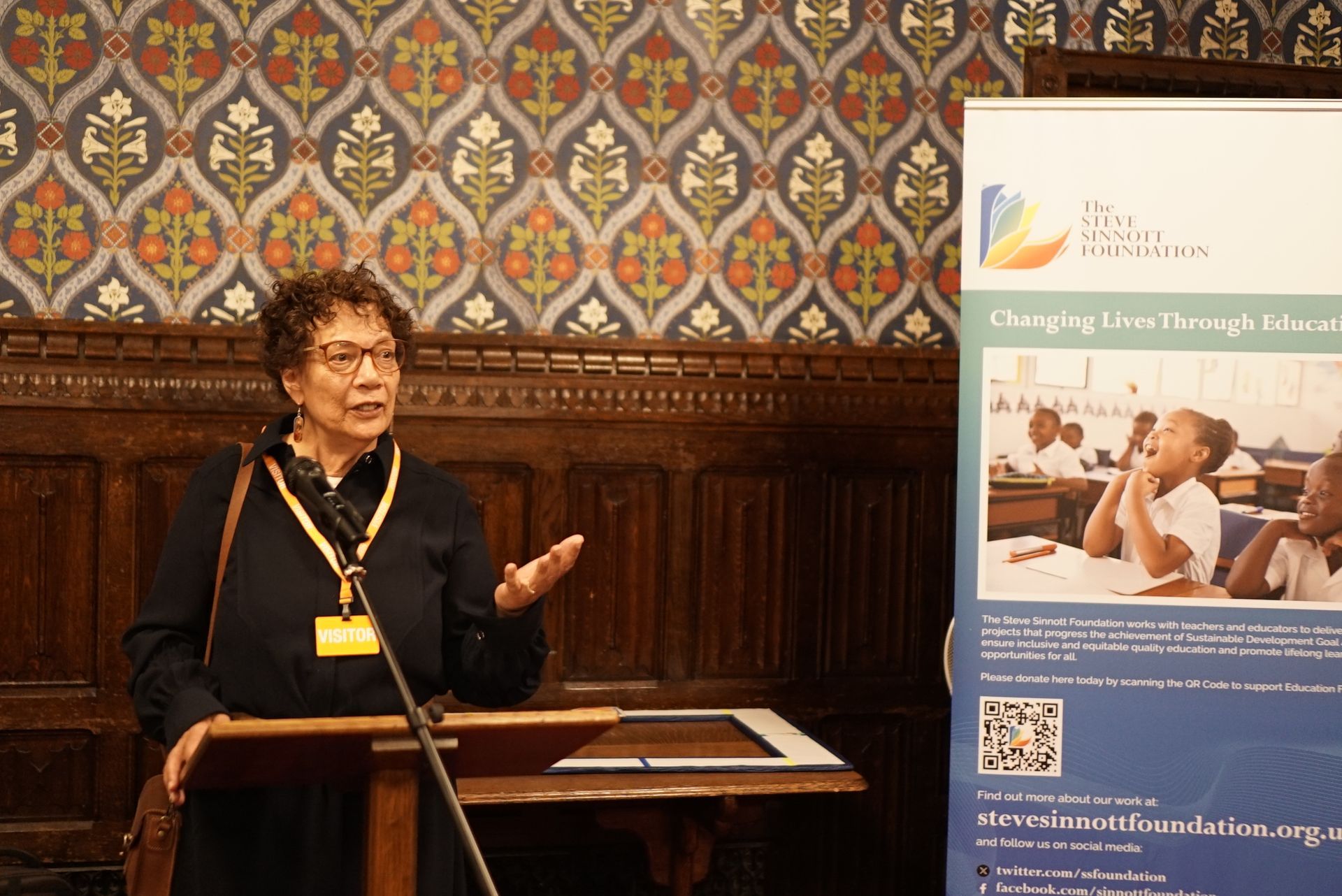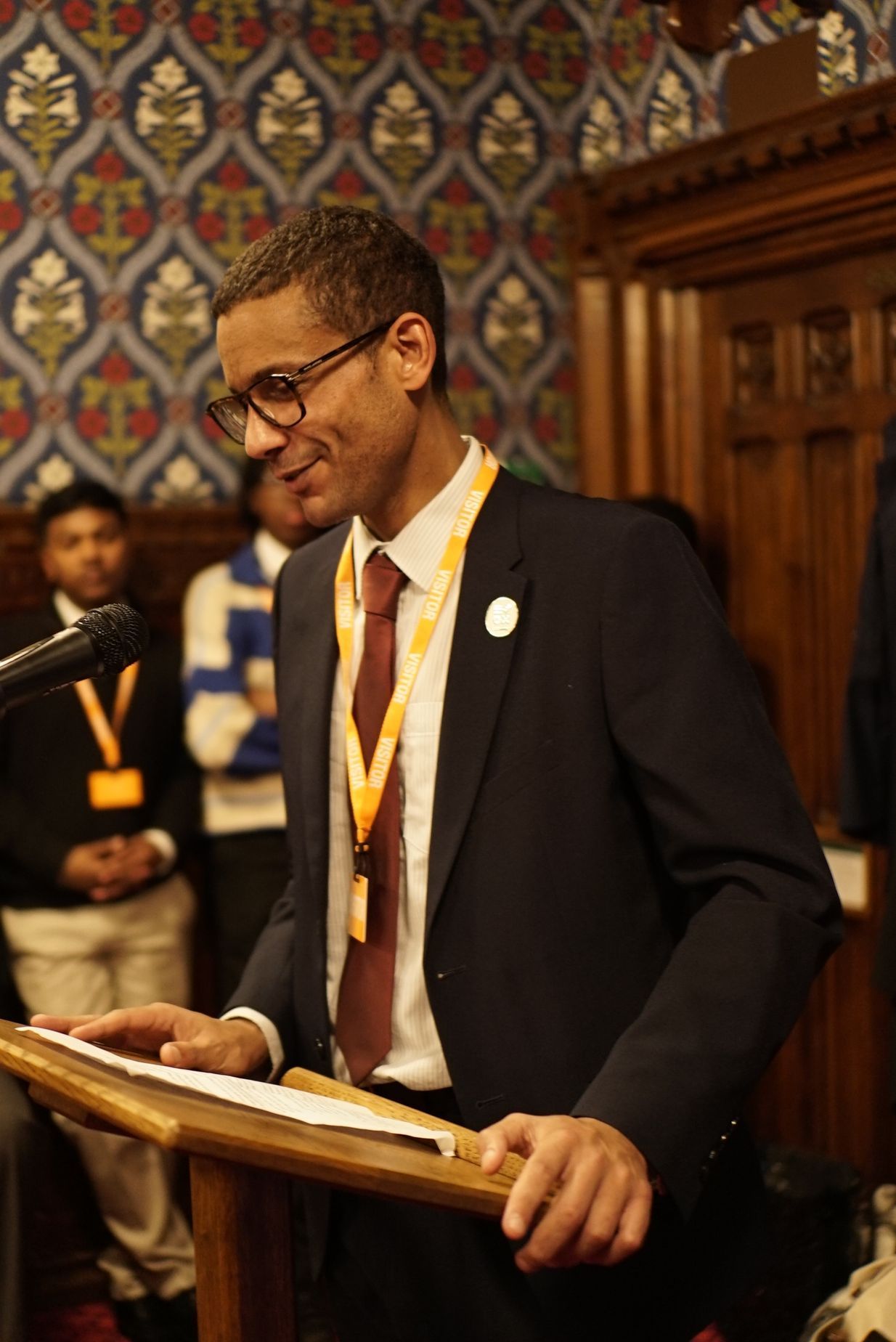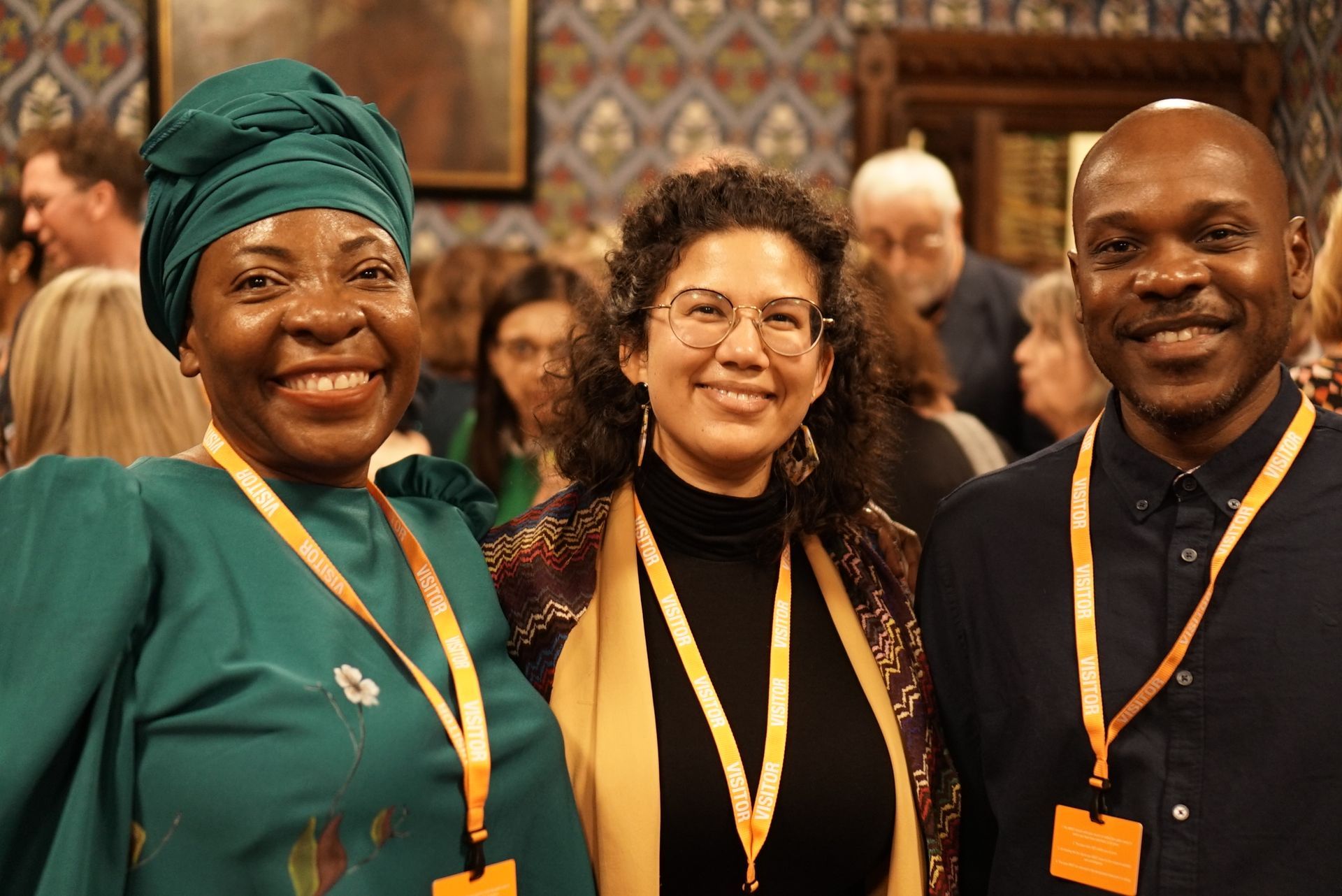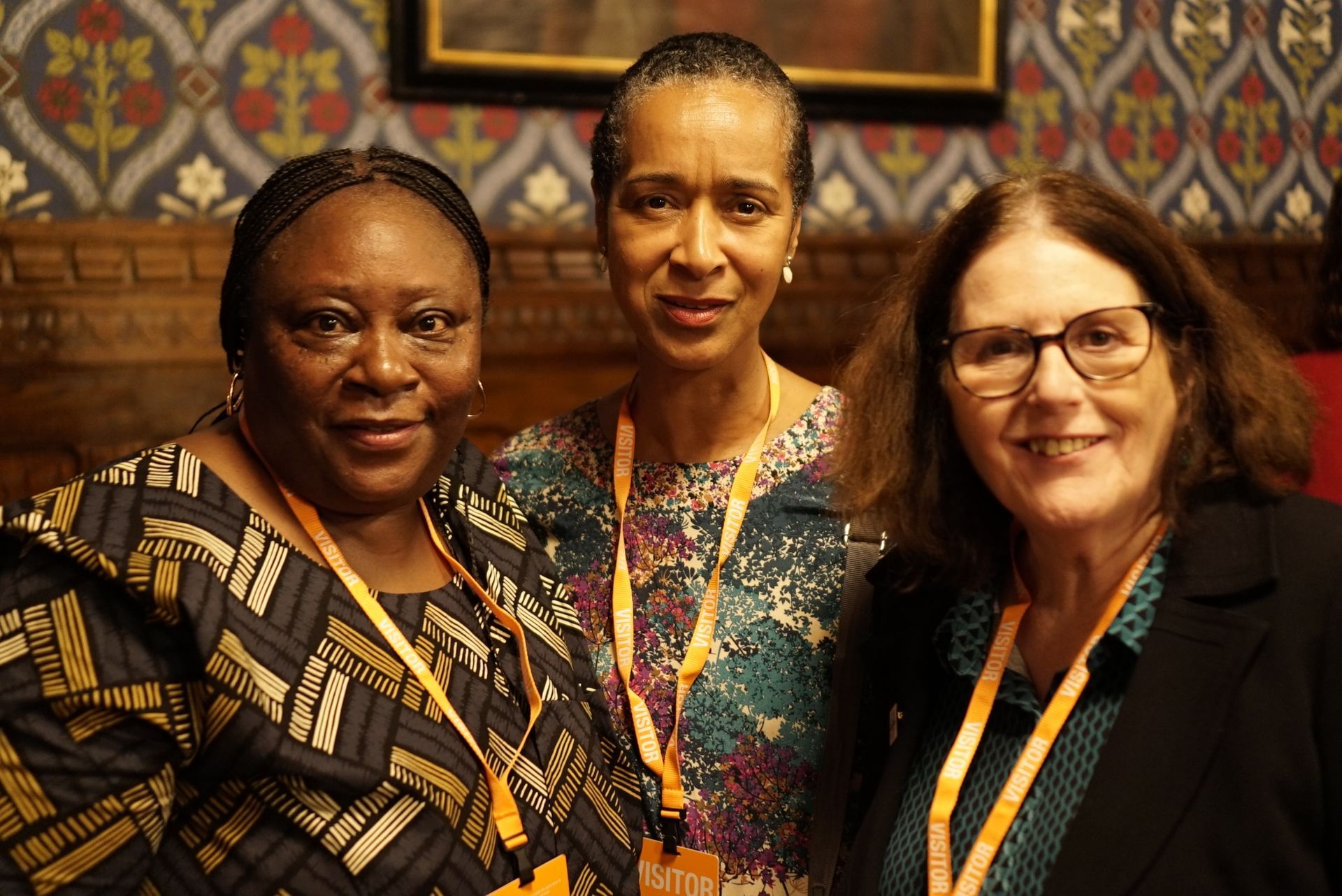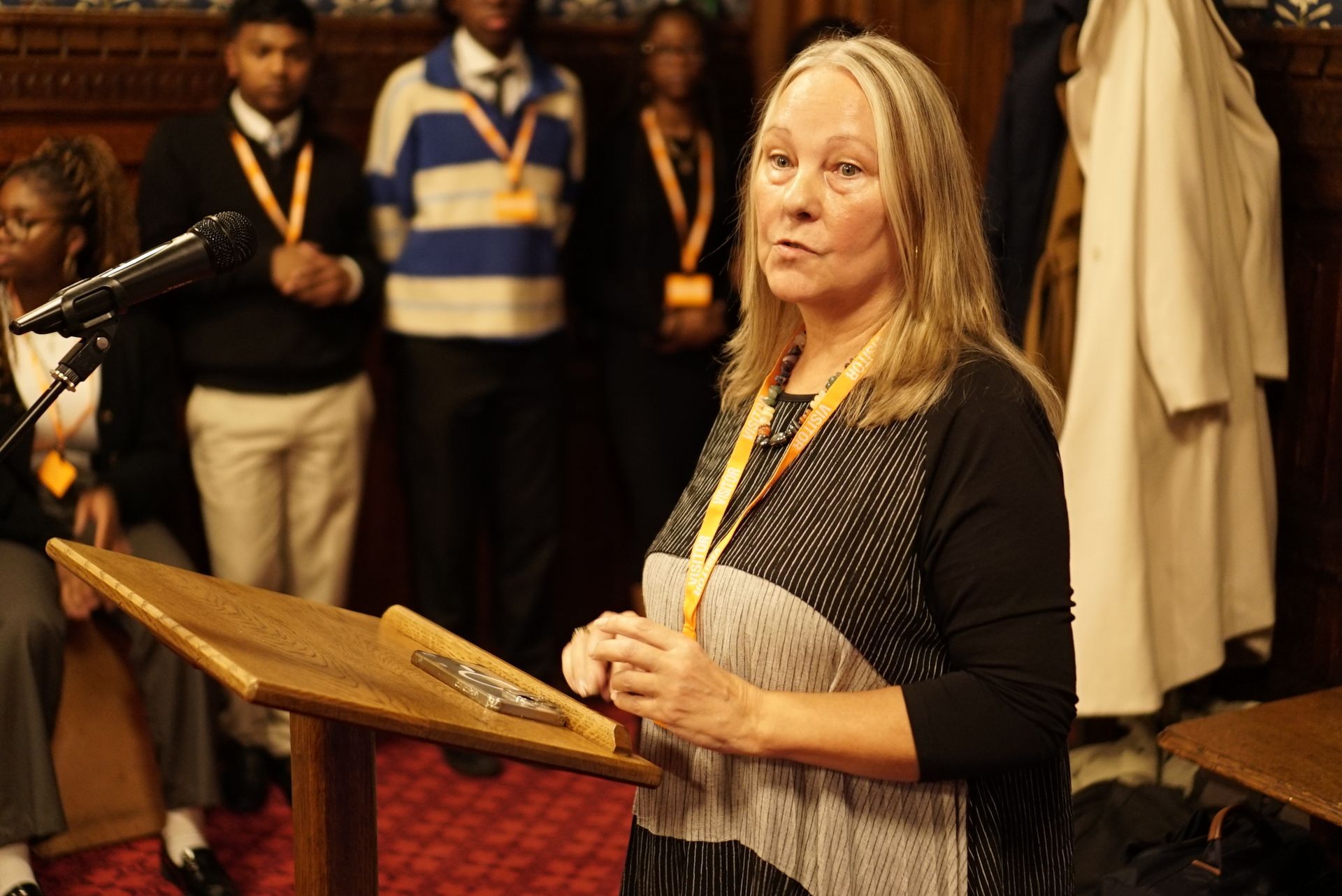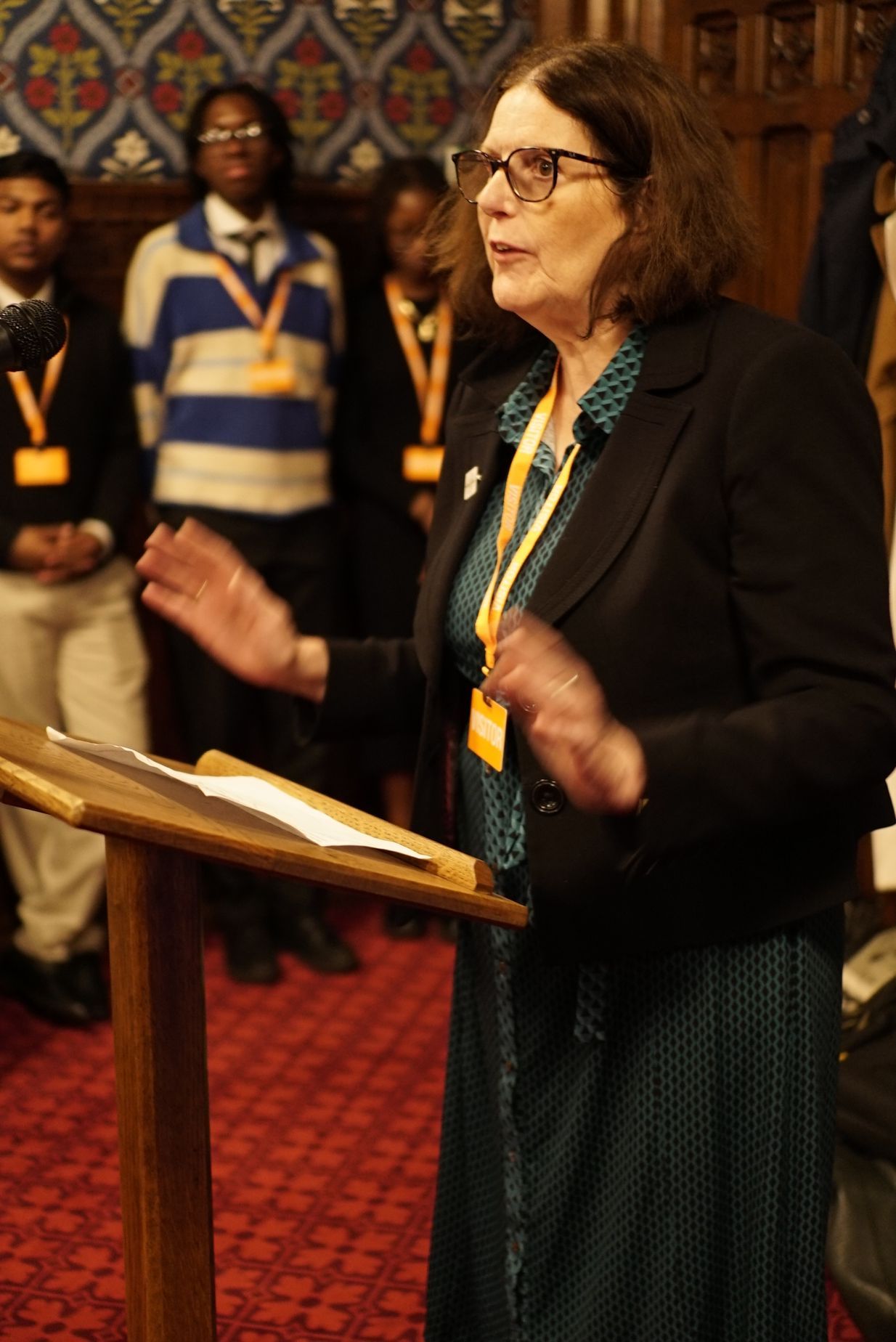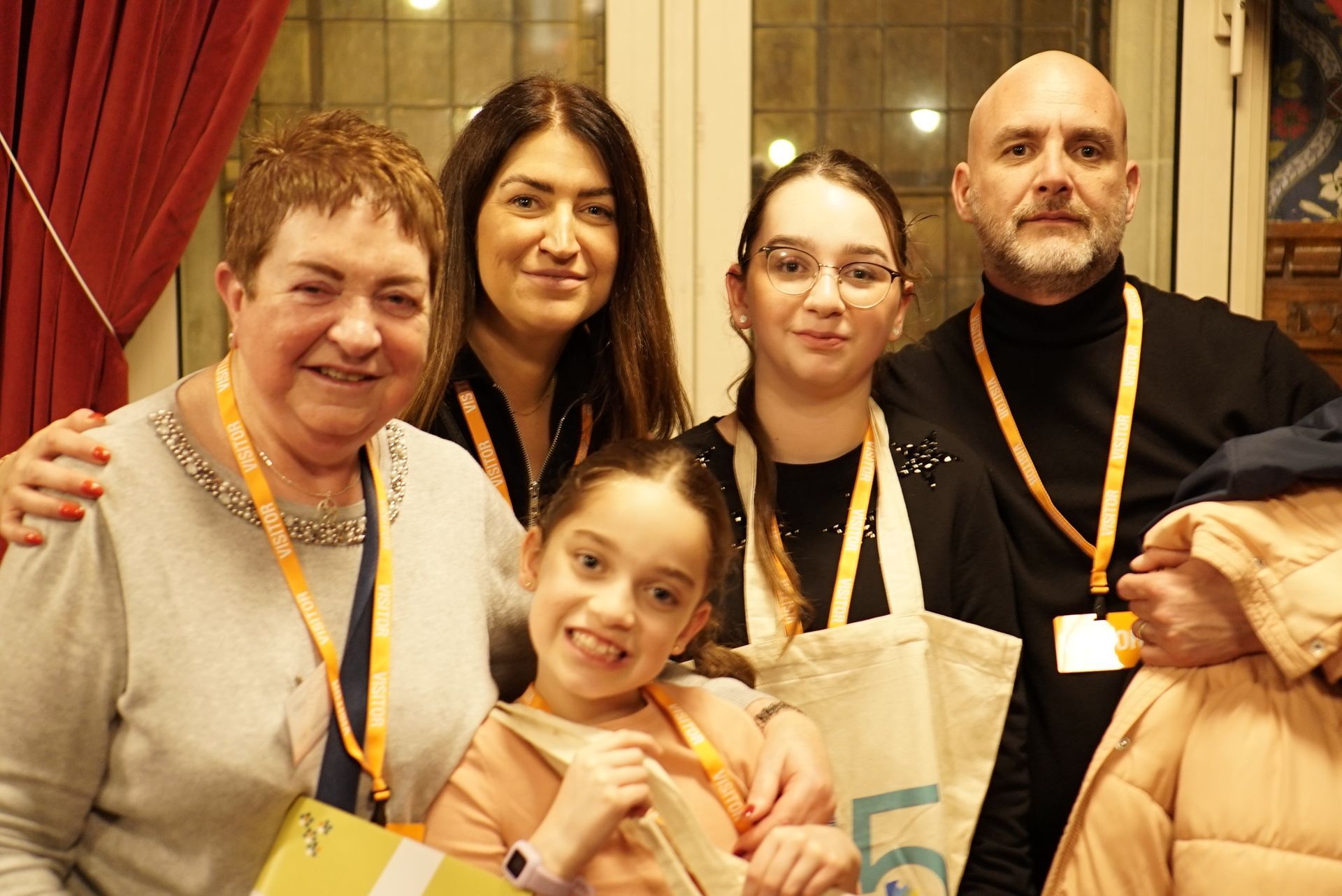Highlights from our 15 Years celebration!
This event, hosted by Amanda Martin MP, is to celebrate 15 Years of The Steve Sinnott Foundation, supporting access to Education for All. The Steve Sinnott Foundation works with teachers and educators to deliver projects that progress the achievement of Sustainable Development Goal 4 - to ensure inclusive and equitable quality education while promoting lifelong learning opportunities for all. We are proud to have worked towards making this goal a reality and continue to do so in honouring Steve Sinnott’s legacy.
Here are some highlights from the speakers on the day!
"On behalf of Education International we wish to bring solidarity, greetings, appreciation and congratulations to the Steve Sinnott Foundation as it approaches this important milestone. I personally remember Steve from our time connecting US and English teachers around fundamental rights, specifically the Magna Carta and the Civil Rights movement. He was and remains an inspiration and beacon in the global teacher union movement. And as we look around us at this moment in time we know he was right, "there are those who are hopeful supporters and activists for justice, human rights and equality; and there is the rest." Education International is proud to be a partner with the Steve Sinnott Foundation and thanks you all for the work you do towards achieving our collective aims. Congratulations to Ann and the team. And lastly, the hugest of hugs to Mary who continues to inspire us all by directing all the energy and promise of Steve's legacy in such important ways for the world's students and teachers. Thank you" - DAVID EDWARDS, PH.D GENERAL SECRETARY OF EDUCATION INTERNATIONAL
"Today is a combination of a celebration & a thank you to all that have been involved. A small but very successful Foundation, something tangible, something beneficial something long lived. A real commitment to education recognising it as a human right. We will continue to support towards SDG4 emphasising on Girls and Women globally" - JERRY GLAZIER, CHAIR OF TRUSTEES FOR THE STEVE SINNOTT FOUNDATION
A Foundation close to my heart, making a real sustainable difference through their projects. I am very happy to be working together with the Foundation towards the achievement of the SDGs. As Steve said "Working together - winning together. - AMANDA MARTIN MP FOR PORTSMOUTH NORTH
"I think the creative projects The Foundation has enables young people and older to imagine an alternative future and how important it is. We have to keep hope, we have to remember our shared humanity." - PROFESSOR AUDREY OLSTER - PATRON
"We absolutely congratulate you for 15 years of operation, born out of the sadness of Steve's death. The Foundation has accomplished great things in pursuing a goal close to Steve's heart - the achievement of every child's right to a quality education wherever they live in the world." - DANIEL KEBEDE - GENERAL SECRETARY (NEU)
"Through our 2021 partnership with The Steve Sinnott Foundation, the Cima Community School now has a Learning Resource Centre with a library and a computer lab. The lab does not benefit our students alone as it is accessible to other students throughout Haiti. These students can connect at weekends and link together to learn English - all because of you! We have also been able to distribute the Positive Periods project to reach more than 15,000 girls and women." - GABRIELLE AUREL - HAITI
"We have built a great partnership with the Steve Sinnott Foundation and the projects have made a real difference in The Gambia for both students and educators. There is still much work to do." - MARIE ANTONETTE - THE GAMBIA
"Thank you to everyone who has supported us over the past 15 years and come together to celebrate this year. Please remember to tell 3 people about our work!" -
ANN BEATTY - CEO




